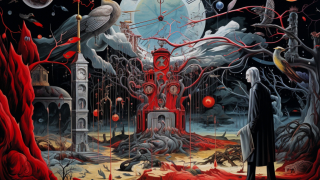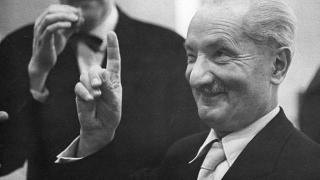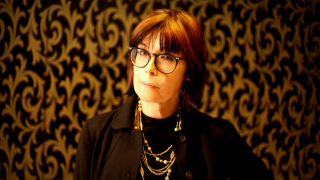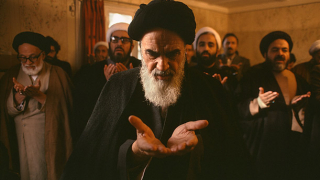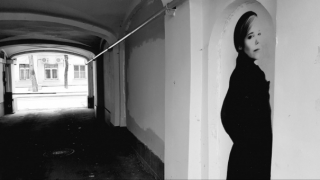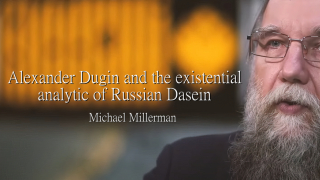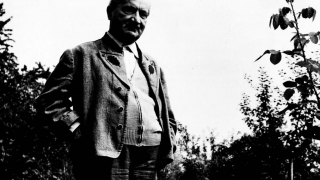The philosophical ship and the twilight of the Russian Logos
Ninety years ago, the Bolsheviks of Soviet Russia performed a political and symbolic act with the provisional title of 'philosopher's ship' (which historiography more crudely calls 'philosopher's steamer'). Nominally, it was the expulsion of part of the Russian humanist intelligentsia from Russia to Germany and Latvia. In September 1922, two steamships left Petrograd and many others sailed from Sevastopol. Among the thinkers who found themselves in exile were Russian philosophers: N. A. Berdyaev, I. A. Ilyin, L. P. Karsavin, N. O. Lossky, P. A. Sorokin, S. E. Trubetskoy, S. L. Frank and others. Many thinkers, writers and musicians had left Russia even earlier. Among them: S. V. Rachmaninoff, S. S. Prokofiev, I. Severyanin, V. Nabokov, I. A. Bunin, Z. N. Hippius, D. S. Merezhkovsky, K. D. Balmont, , A. M. Belyi, A. M. Rechka. Belyi, A. M. Remizov, B. K. Zaitsev, I. G. Ehrenburg, V. V. Kandinsky, F. I. Chaliapin, M. I. Tsvetaeva, V. B. Shklovsky, V. F. Khodasevich, etc. Many of those who did not leave Soviet Russia were repressed and even shot (N. Gumilev, later N. Klyuev), some committed suicide, others went into internal exile...
The philosopher's ship of 1922 was undoubtedly a symbolic event (one can speak of the symbolism of a ship, an ark, a voyage, water, movement, a bridge, etc.), which marked the end of the last hopes of the Russian intelligentsia, which had pinned its hopes on the element of the Russian Revolution, where the ideas, the projects of a possible and then expected Russian philosophy simmered in the flame of renewal.
With the philosopher's ship and the subsequent emigration of most of the intellectual elite of the Russian Silver Age, the philosophical process in Russia was interrupted. But what exactly was interrupted? Did a genuine independent philosophical tradition, a systematic philosophical discourse exist in Russia?
Most probably not. It was an attack on the very process of the birth of the Russian logos, its maturation in the womb of the Russian element, the process of the initial liberation of philosophical consciousness from the chaos of Russian existence.
Answering the question in this way, I agree with the deeply rooted position of Alexander Dugin, who in his books 'Martin Heidegger and the Philosophy of Another Beginning' and 'Martin Heidegger and the Possibility of Russian Philosophy' has convincingly demonstrated that Russian philosophy is still on the verge of birth. It has simply never been born, despite centuries of efforts of the Russian soul to germinate a logos across the Russian field, to rise from the womb of the Russian land, to rise above the horizon of Russian space. And while the Russians in history have certainly thought - about liturgy, the elements, space, war, power, the state, God or chaos - they have not thought philosophically so far.
The Russian logos today 'lies under the steam', it is in the preparatory stage, in the womb of the Russian element, Russian space, thought, history, the Russian people and 'dasein'.
Russian (specifically Russian, and not Western European or universal) philosophical thought has not yet taken place.
The question arises: what do we mean by philosophy as such? In this regard, it is worth considering the reflections of the greatest 20th century philosopher Martin Heidegger on the entire edifice of Western European philosophy and its fate.
Philosophy, according to Heidegger, emerged some two and a half thousand years ago, rode royally through the stages of Western world history, erected Western civilisation in its premises and foundations, underwent dizzying conceptual metamorphoses, and finally came to its conclusion, to its complete and irrevocable end.
In its First Beginning, however, philosophy was born beautifully: in the games of the gods that revealed to the sages of ancient Greece the multidimensionality of the worlds and the violent images of the higher dimensions, the dialectic of the one and the many, of the one and the other, of the all and the nothing, of the transcendent and the immanent. Philosophy was by no means a systematic thought or διάκρῖσις . Thought, the Logos, revealed itself to the pre-Socratics as a transcendent divine reality, as a lightning bolt piercing the horizon of being, as the sacred experience of the piercing blow of the other, as the fierce light of transcendence, as the phenomenon of the divine beginning, as the phenomenon of Being itself.
For Heraclitus, the Logos revealed itself in the form of the divine lightning bolt, Zeus. It is a leap of the sage beyond himself, a leap into the abyss inspired by divine intervention. Nietzsche, too, in the 19th century, at the end of philosophy, emphasised the traumatism of the logos: 'I am as if wounded by the arrow of knowledge, poisoned by the poison of curare, I see everything'. Birth into the logos is a pain similar to initiation: one must rise above the human level, cross the horizontal with the vertical.
Heraclitus describes the experience of the non-human nature of the logos epiphany roughly as follows: "If you do not believe in me, but in the logos, everything is one. Here the observer, enlightened by the divine presence, is ready to renounce the phenomenal picture certified by his own ego and to surrender all authority to the divine Logos.
In pre-Platonic Greece, the philosopher acquires the second dimension of vision: it is the ability to contemplate being in its entirety, including its source, the invisible to the mere eye, the golden ball of divine play, the shimmering fabric of divine garments. In the lightning enlightenment, the Greeks saw that the 'manifold being' ( τό όν, τα πάντα), 'existing all', 'nourishing much' has another side, which the Greeks designated as being (through the verb είναι), ἔν, inherent to everything, but not identical to any of the beings, 'other' perpendicular to 'it'.
Truth is revealed, according to Parmenides, if we do not listen to the voice of 'opinions' (δόξα), not our own voice, but the call of divine being. Every being acquires legitimacy and validity if it stands in the 'uncoveredness' of being, in the ἀλήθεια, if it is guarded by being. Being, divine, sacred, numinous, is fraught with birth and annihilation; it is responsible for the sprouting of things and their disappearance, it nourishes and culls things, it accounts for (punishes) according to necessity (Anaximander), so that man has only to listen to the high mystery of being in order to fill and empty the world of its true measure. The philosopher is called upon to compose songs in honour of this unlimited yet measured world-work of the thundering Being. He must listen, take cues and move in the flow of Genesis, the mystery of the birth and disappearance of the universe. It must sing Genesis in its secret fullness, revealed to the chosen one in the mystery of the initiatory experience.
The vision of another transcendental dimension, the source of being, accompanied by a distinct self-reflection of the beholder, i.e. a testimony of the beholder and the beholder, was called philosophy. This is how Greek philosophy was born. That is how its royal edifice was built in the beginning, but there was a rupture in this beginning. It was rooted in the nuances of the most complex relations between Being and Being.
M. Heidegger was also committed to the understanding of these realities fundamental to logical thought. It was he who saw the nerve of Western European philosophy in the relationship between Being and Being (Bezug) and who saw in the distortion of proportions in the relationship of these realities (in the forgetting of Being) the cause of the birth, flowering and triumph, as well as the death of Western philosophy.
From Heidegger's point of view, modern Western philosophy (and he neither knows nor recognises any other, like any Westerner) lies in ruins. The reason for the decline and then disappearance of philosophy according to Heidegger is a falsely constructed Bezug, a falsely understood relationship between being and being. The ancient pre-Socratic thinkers were almost flawless in this respect. But gradually the proportions have changed. Perhaps the pain of initiation and the glittering sphere of Being are unbearable to the common eye. And Being - sacred, creator and destroyer, holy and formidable, the bearer of simultaneous birth, life and annihilation - was already conceptualised in Platonism as the essence of being, the idea - είδος, the model, the paradigm - παράδειγμα, by imitation of which being had to exist. Plato constructed a two-storey topical 'being - essence of being' and left open the question of the subsequent floors of the edifice. According to Heidegger, Plato's two-storey reconstruction was interpreted by the main line of Western European philosophy as a closure of the entire structure from above and, after adopting the concept of matter as the lower limit of the universe (from the notions of χώρα and ὕλη), as a closure from below.
In the space between these two plates - the idea above and matter below - Western European philosophy has existed for centuries, constructing complex constructions of the relations between phenomena and eidos, subjects and objects, matter and spirit. The oblivion of being and the referential theory of truth have resulted in a monstrous tyranny of reason, mechanism, loss of meaning and the disappearance of philosophy as such.
The way out, from Heidegger's point of view, is to seek a second initiation into philosophy. This means clearing the land of the rubble of decrepit ontological and metaphysical realities and a new turn to the point of being's first contact with being.
This point of experience free of philosophy and metaphysics, of the primordiality of man's encounter with the world and with Being, and at the same time the primordiality, the terrain of future philosophy, Heidegger called it dasein - 'here-being'. Dasein is the territory of being in which Being can once again address man. However, this possible new encounter of the human being with Being is not guaranteed by anything. After all, Being has already lost its way once, moved away from us, and nothing guarantees that Being will respond to the appeal of the dying being, of the human being. For Genesis is fragile and guided by the light-footed gait of the gods - the last gods with the sad grin, removed from human existence.
Yet, the hope of invoking Genesis, of calling it from the abyss, remains. It is the hope of the Event, Ereignis.
Heidegger's hope is that Western dasein will form a new relationship with Being - this will be a New Beginning and a New Philosophy. For the West. For the land of the sunset. For Abendland.
But what does Russia have to do with it? An unexpected and paradoxical way of thinking is suggested here.
If Western philosophy is able to be reborn from Western dasein, perhaps something similar will happen in Russia? Perhaps Russian dasein will be the source of Russian philosophy? Perhaps we should turn to this unique primordiality as the source of a possible Russian philosophy?
The suspicion that dasein is not a universal and unified element for all peoples and nations stems from the idea that every land and civilisation, every place ( τόπος ), every ethnos and nation gives birth to unique life-worlds full of special meanings, celebrating the blossoming complexity of the universe. They go back to Xenophanes and Plato. And these, in turn, are based on even more archaic myths of ctonogenesis.
The Russian dasein is unique. Its contours are proposed to be recognised and delineated in a comparison.
The 'dasein-o-vision' comparison provides a striking picture, revealing chasms of inconsistency. Western European dasein is highly differentiated, drawing boundaries everywhere, opposing 'yes and no', 'Being and nothing'. The Western logos cuts like a razor, like the scythe of being cutting the ripening ears of wheat. The sharpness and sharpness of the boundary between 'this' and 'this' provoke an exalted subjectivity. The subjective pole (etymologically 'under - abandoned', existing in between) is alone, suspended above the abyss, abandoned, gripped by terror. In Western dasein, the subject component is totally mobilised and concentrated away from the boundary beyond which the abyss lies. The 'horror' (Angst) of its proximity provokes a chase and a 'leap' over the abyss: this is the 'project' (Entwurf), the Gestell, the will, the capture, the colonisation, the 'techné' that have become the destiny of Western civilisation. The active subject projects, contours, catologises, straightens and schematises space, curves the existential dimension, turning it into a virtual discriminant of nature.
The Western dasein is a hologram with the same configuration; Western individuals are homologous to the general pattern and to each other. The differences between them are insignificant and represent random aberrations. Western philosophy speaks of the universal subject, the universal 'transcendental self' (Husserl) and the 'transcendental subject' (Kant).
The Russian dasein is very different. It is inclusive. There is no opposition between 'yes' and 'no', between being and nothingness, between life and death. The Russian man is an all-human being, capable of incorporating, understanding, appropriating and digesting everything (F. Dostoevsky).
Russians hardly mark the boundary between the one and the other. Rather, they themselves stand, or rather, live on the border, so that they can effeminate it, if necessary, like Vanka-Vstanko, deviating to one side (subjective) or the other (objective). Their thematic pole is weak and blurred, their project impotent and obscure. The Russian is not inclined to conquest, to generation, to the creation of things, he gravitates towards dissolution.
The Russian dasein is not individual. It remains at a distance from the individual, it is localised in the Russian people. There is nothing in the Russian individual, the subject is undeveloped. It is a 'poor subject', a 'poor thing'. The Russian borrows his dasein from the Russian people.
If the European dasein is always verticalised, 'tuned in', located in 'fear', in 'falling' ('Verfall'), in 'understanding' ('Verstehen'), in 'being at death' ('Zein zum Tode'), with the Russians fear and death are within themselves. They have digested them and therefore have no fear. The fall is ordained for them, because their dasein is already stretched out, rolled horizontally. To understand in Russian means to take and flank. Russians are at home as they are at home. Being is beside them, like being.
Heidegger said that European Sadianism is threatened by the impersonality of an impersonal, inauthentic (non-personal) existence, das Mann. It seems that Russian consciousness is not threatened by das Mann, it is more authentic than individual Russian existence.
Unlike Western Europeans, Russians experience time and space differently. The German word 'Zeit' is associated with a division, with an interval, with something broken, with a part. In Russian, on the other hand, time is a spindle, a coherence, a continuous thread of circular rotation. Rather, time is understood as space, in which a certain place - τόπος - is emphasised.
But the most important thing is that the Russians have a different way of orienting their relationship with God than the West. In the West, it is man who believes in God, invokes Him, thinks about Him, invokes Him from the abyss in the 'highest risk', without receiving any guarantees. In Russia, it is God who thinks, who designs man, who endows him with being. Russian man lives in God's intentionality. Western gods are light, as Heidegger writes. They are tangential to the human circle. The Russian God is heavy, he lives in the Russian people, he is 'eminent', providential, merciful and guardian. The Russian dasein is theocentric. The Russian being has more faith in God than in man. For the Russian, it is much easier to believe in the Blessed Virgin Mary and, through her, in humanity, than vice versa. Hence a different interpretation of the two natures of Christ and the dogma of the trinity than in the West.
Where can the Russian Dasein be located? In a space that is very reminiscent of Plato's concept χὠρα, 'nurturing mother', 'receptor', the lower limit of the cosmos, the void, the opening, the gap, in which dualism, opposition, differentiation are removed. Χὠρα. A strange reality. Plato thought it could only be conceived by the method of 'illicit thought', like a dream or faith.
Summarising the above, we conclude that Western European philosophy was formed as the reflexive capacity of the logos to construct hierarchies, asking questions about transcendent or immanent motives, causes, meanings and purposes of things. It is a highly differentiated reality, drawing the boundaries of 'this' and 'the other' (immanent and transcendent, being and nothingness), capable of constructing vertical hierarchies of being in its relation to the other, being. After having initially established (in the First Beginning) the true proportions of the relationship between being and being, over time Greek thought gradually lost its taste for openness to the source of Being and became locked in a metaphysical labyrinth of closed systems and constructions. The Western logos, nourished by the Aristotelian logical laws of identity and the prohibition of contradiction, has given its universe clear boundaries, ruled it in graphs, assigned indices and stopped answering the main questions of human life - about ultimate meaning, reason, purpose and time.
The Russian athlete revealed another peculiarity of thought: undifferentiated, fused, holistic, androgynous, ignoring boundaries, straight lines and sharp divisions. This capacity for thought rejects the Aristotelian laws of logic and conceives other plastic and dialectical lines of thought.
The modes of Russian thinking are different. They draw on the archaic practices of Dionysism. The Russian logos, being born, points to Russian chaos as a primordial bubbling of solar and dark energies.
The outbursts of the Russian logos in Russia have been associated with many episodes. Among them: the compilation of Church Slavonic by Cyril and Methodius for the translation of the corpus of biblical texts and liturgical literature, Metropolitan Ilarion's 'Word on Law and Grace', the era of the Moscow Empire, in which Orthodoxy began to be moulded into the idea of 'Moscow-Third Rome', and the State and the Tsar were seen as a catechon, a deterrent, a barrier to the Antichrist before the end of the world, when in Russia an attempt was made to build the Platonopolis. This is also Russian Hesychasm - the teaching of St Gregory Palamas on divine energies, which was established forever in Russian monastic hermitages and determined the particular penetrating tone of Russian Orthodoxy. It is also the ardent anticipation of the birth of the Russian Logos in the religious-philosophical research of Russian thinkers and writers in the late 19th and early 20th century. These include Vladimir Soloviev's Philosophy, Soloviev, Bulgakov and Florensky's Sophology, Nikolai Fyodorov's idea of overcoming universal separation and Merezhkovsky's idea of the 'two abysses' and the Third Alliance...
All this requires specific treatment, but the subject of Sophia for Russian philosopher-sophologists was the attempt to conceive of the universe within the framework of the non-dual Russian logos. Sofia, uniting in herself the divine mind (the male principle) and the feminine origin, whereas femininity has always been identified in tradition with immanent, natural, earthly things, was initially the embodiment of a strange dialectical synthesis. It was immanent transcendence, the paradoxical possibility of transcending the separation of the two abysses, the carnal-bodily and the divine-spiritual. Sophia, as the embodiment of the divine energies emanating in the world, was the meeting point between the phenomenal and the ideal, the place of man's deification and his communion with the divine energies. At the same time, Sophia is not simply on the border between two worlds on the side of ideas, but is identified with a woman at the pinnacle, at the apogee of femininity, endowed with ambiguity, depth, momentum, open to the abyss and obscurity. She is a celestial-terrestrial Sophia in which there is everything, order, motherhood, chaos and cosmos.
"Chaos is an absence of primordial and spontaneous elements, the cosmos is an organised harmony. The order of the world is anxious, it is the child of disorder...', wrote Alexander Blok, reflecting on Sophia's secret side, the chaotic inner basis of order and harmony. Another profound insight into Russian dasein is Solovyov's idea of omnity, the connection of everything with everything. Soloviev speaks of the involvement of all things in chaos, which is only possible from the position of the philosophy of chora, when order is thought of as simultaneously divided and undivided...
Philosophical ships. They brought with them the first shoots of the awakening of the Russian logos. And then came the twilight. The twilight of the unborn logos.
There were many terrible things and great things. But only one thing was missing: the difficult process of the birth of Russian philosophy. Only chimeras, caricatures, simulacra and baleful ghosts. By the end of the 20th century, Russians had generally lost the ability to think, to reason logically, to make distinctions, to separate one thing from another. Thought had slipped, fallen asleep, sunk into the exalted materiality of consumption. By comparison, even Soviet materialism turned out to be high idealism.
And all this is a consequence of the sailing of philosophical ships that carried the sparks of our Russian logos with them, which were ignited and extinguished in foreign lands. Apparently, we are cursed....
Translation by Lorenzo Maria Pacini



